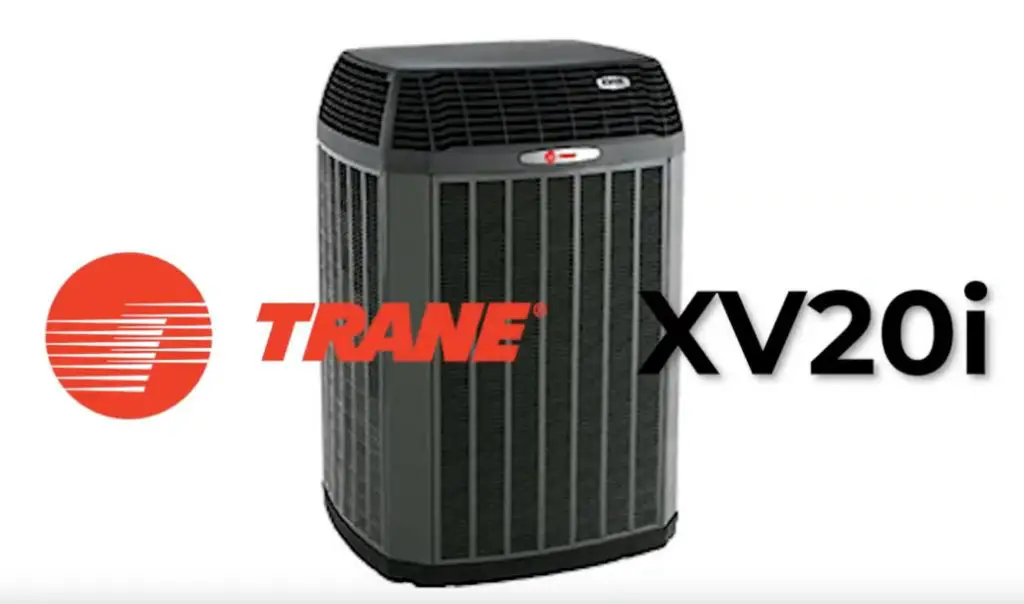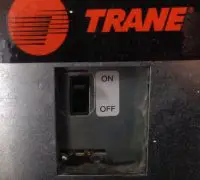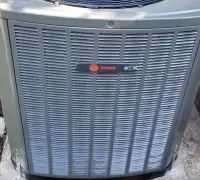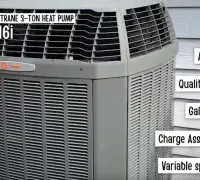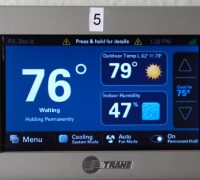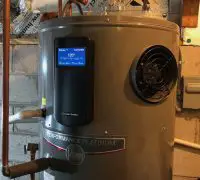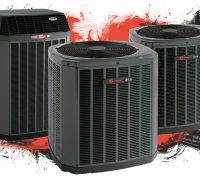The heat pump is a component of the central heating and cooling system. It uses the outside air to cool your house in the summer and heat it in the winter.
Page Table of Contents
How does a Trane heat pump work
From a technical point of view, the heat pump is a mechanical-compression cycle refrigeration system that you can reverse to heat or cool a specific space. According to the season, the heat pump is like a heat transporter that continuously moves warm air from one place to another, to where you need it or does not need it. Even if you feel the air is cold, the heat energy is still present. The heat pump takes heat from the cold outside air and inside the house. The compressor inside the heat pump uses electricity to increase the temperature of the outside air. The heat pump will cool a home by transferring warm indoor air to the outside.
The heat pumps include two main components: the indoor air handler and the outdoor unit, which resembles the central air conditioner. The outdoor unit consists of a compressor that circulates refrigerant that takes in and releases heat while traveling between the outdoor and indoor units.
The heat pumps are perfect for moderate climates. You will need a secondary heating source if you live in lower temperatures. You can use a Trane heat pump as a year-round solution for home comfort and a matched system. Contact your local Trane dealer to see if the heat pump system is appropriate for your household.
What is a dual fuel heating system?
The dual-fuel heating system is a hybrid system that consists of an electric heat pump and a gas furnace. According to the season, the system will alternate between using the two devices, the function, and temperature needed to heat or cool your house year-round efficiently.
The heat pump of the hybrid system works like a central air conditioner in the summer months as it takes the hot air outside the house until the thermostat reaches the set temperature. When the temperatures are mild in the fall and spring months, the heat pump will provide energy-efficient heat.
The dual-fuel furnace will heat the house during the cold winter months. Furnaces only have one function: turning fuel into heat quickly and efficiently. When the temperatures are cold, the furnace will perform this function.
The dual-fuel system will use the heat pump when the temperatures are 400f and higher, whereas the furnace will come in place when the temperatures go below 390f. The system will switch between the two appliances according to the circumstances to keep your house comfortable and the energy bill under control. The dual systems are reliable for any climate throughout the year. Since each of the two components of the system works only when needed, the lifespan of a dual fuel system is around 20 to 25 years.
When to use a Trane heat pump
Heat pumps are an energy-efficient HVAC solution, especially in the South or Southwest, where temperatures seldom go below freezing. People living in colder areas can also install a heat pump in their homes as a secondary heating appliance and a furnace or electric heating device. The heat pump is the most efficient on its temperature, around 25 to 30 0 F. When the temperatures get lower, the other heating devices will kick in to heat the house. House will stay warm even in the coldest ways and run efficiently throughout the year. The most effective heat pumps will perform in temperatures as low as 00 F.
When does a dual fuel heat pump make sense?
If you live in an area with four seasons and changing temperatures, you should opt for a dual fuel heat pump. In hot and mild climates, heat pumps represent an excellent choice. However, in places with cold weather, most of the time, the furnace will heat the house most quickly.
Opt for a dual fuel system if temperatures are very hot and freezing. Even if a heat pump can heat and cool, it will work at shallow temperatures and no longer be energy efficient. Since dual fuel heat pumps get the best parts of both heat pumps and furnaces, they’re an excellent choice no matter the climate you live in.
Here’s a video explaining in-depth how heat pumps work in general:
